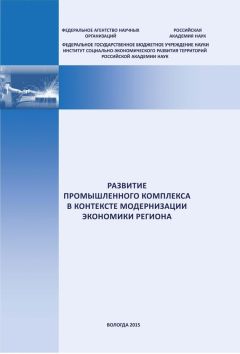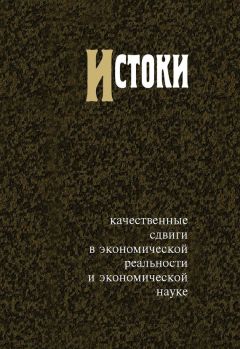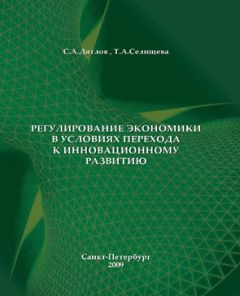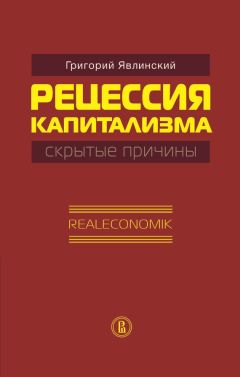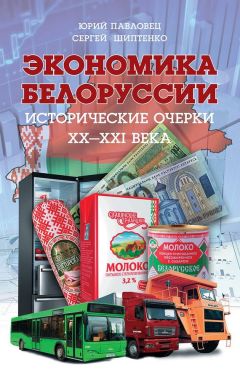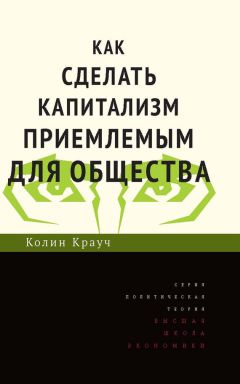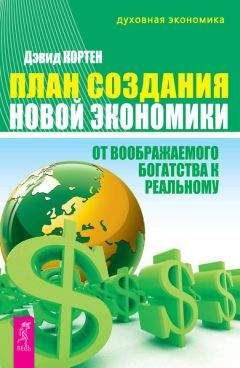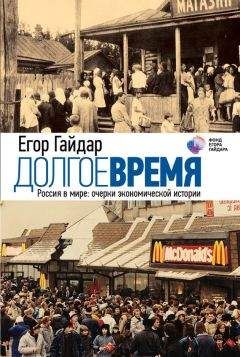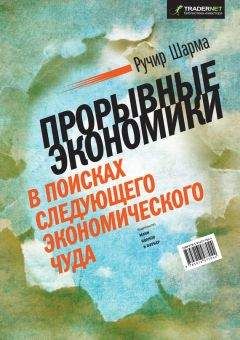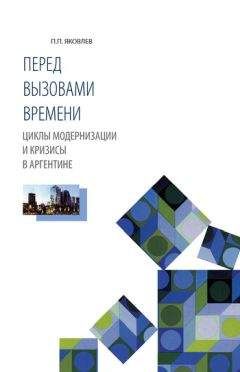Франк Трентманн - Эволюция потребления. Как спрос формирует предложение с XV века до наших дней

Все авторские права соблюдены. Напишите нам, если Вы не согласны.
Описание книги "Эволюция потребления. Как спрос формирует предложение с XV века до наших дней"
Описание и краткое содержание "Эволюция потребления. Как спрос формирует предложение с XV века до наших дней" читать бесплатно онлайн.
83
Alan Hunt, Governance of the Consuming Passions: A History of Sumptuary Law (Basingstoke, 1996), цитата со с. 73.
84
Andreas Maisch, Notdürftiger Unterhalt und gehörige Schranken: Lebensbedingungen und Lebensstile in württembergischen Dörfern der frühen Neuzeit (Stuttgart, 1992), 366—70.
85
Hans Medick, Weben und Ueberleben in Laichingen, 1650–1900: Lokalgeschichte als allgemeine Geschichte (Göttingen, 1996), особенно 387–437.
86
Daniel Roche, The Culture of Clothing: Dress and Fashion in the «Ancien Régime» (Cambridge, 1989/1994, 56.
87
Sheilagh C. Ogilvie, A Bitter Living: Women, Markets and Social Capital in Early Modern Germany (Oxford, 2003); Ogilvie, «Consumption, Social Capital and the «Industrious Revolution» in Early Modern Germany».
88
Matteo Ricci, China in the Sixteenth Century: The Journals of Matthew Ricci: 1583–1610, trans. from the Latin by Louis J. Gallagher (New York, 1583–1610/1953), 25, 550.
89
Semedo, The History of That Great and Renowned Monarchy of China (1655; 1st Portugese edn, 1641), https://archive.org/down-load/historyofthatgre00seme/historyofthatgre00seme.pdf.
90
Timothy Brook, The Confusions of Pleasure: Commerce and Culture in Ming China (Berkeley, CA, 1998), 123 и дальше.
91
Semedo, History of That Great and Renowned Monarchy of China, 23.
92
Brook, Confusions of Pleasure, 198. См. также: Bozhong Li, Agricultural Development in Jiangnan, 1620–1850 (Basingstoke, 1998).
93
Sarah Dauncey, «Sartorial Modesty and Genteel Ideals in the Late Ming»: Daria Berg & Chloe Starr, The Quest for Gentility in China: Negotiations beyond Gender and Class (London, 2007), 137.
94
Daria Berg, Women and the Literary World in Early Modern China, 1580–1700 (London, 2013).
95
Wu Jen-shu, Elegant Taste: Consumer Society and the Literati in the Late Ming (Taipei, 2007). Wu Jenshu, «Ming—Qing Advertising Forms and Consumer Culture» (готовится к выходу), с благодарностью У Джен Шю за возможность изучить его работу.
96
Brook, Confusions of Pleasure, 6, 220.
97
См.: Clunas, Superfluous Things, 37 f.
98
The Plum in the Golden Vase, or Chin P’ing Mei, trans. David Tod Roy (Princeton, NJ, 1618/1993), Vol. I, 126, 133—4.
99
Brook, Confusions of Pleasure, 153—4.
100
По мнению Шеня Бана (Shen Bang), на похороны могло уйти до тысячи лянов (чиновник низкого ранга зарабатывал 35 серебряных лянов в год); см. Dauncey «Sartorial Modesty»: Berg & Starr, The Quest for Gentility in China, 134—54.
101
PingTiHo, «The Salt Merchants of Yang-chou», Harvard Journal of Asiatic Studies 17, 1954: 130—68, цитата на с. 156.
102
Werner Sombart, Luxus und Kapitalismus (Munich, 1912), 96—7.
103
Yue Meng, Shanghai and the Edges of Empires (Minneapolis, MN, 2006), 143—6. См. также: Antonia Finnane, «Chinese Domestic Interiors and «Consumer Constraint» in Qing China», Journal of the Economic and Social History of the Orient 27, 2014: 112—44.
104
Цитата из: Brook, Confusions of Pleasure, 144. См. также: Kenneth Pomeranz, The Great Divergence: China, Europe and the Making of the Modern World Economy (Princeton, NJ, 2000); Roy Bin Wong, China Transformed: Historical Change and the Limits of European Experience (Ithaca, NY, 1997); Hanchao Lu, «Arrested Development: Cotton and Cotton Markets in Shanghai, 1350–1843» из: Modern China 18, no. 4, 1992: 468—99.
105
Clunas, Superfluous Things, 35, 38, 44.
106
Цитата из: Clunas, Superfluous Things, 74.
107
Clunas, Superfluous Things, 111.
108
See Kathlyn Maurean Liscomb, «Social Status and Art Collecting: The Collections of Shen Zhou and Wang Zhen», Art Bulletin 78, no. 1 (1996): 111—35.
109
The Plum in the Golden Vase, or Chin P’ing Mei, 223, 383—4 для предыдущей цитаты, которая написана по транскрипционной системе Уэда-Джайлза, пиньинь в скобках.
110
Dauncey, «Sartorial Modesty», из: Berg & Starr, The Quest for Gentility in China, 140 f.
111
Многие аналитические заключения Бурдьё о парижской буржуазии 1960-х соотносятся с поздней эпохой Мин и эпохой Цин. См., к примеру, его рассуждения об «эстетической диспозиции» и о неисчезающей привлекательности «ученого мира с его правилами и практиками ради практик» для подростков и домохозяек из буржуазии, которым не достает экономического капитала взрослых мужчин. «Экономическая сила, – замечает он, – это в первую очередь такая сила, которая позволяет держать экономическую необходимость на расстоянии вытянутой руки. Вот почему она, как правило, утверждает себя, разрушая богатства, атакуя расточительное потребление, транжирство и все формы бесплатной роскоши»; Pierre Bourdieu, Distinction: A Social Critique of the Judgment of Taste (Cam-bridge, MA, 1984/1979), 54 f.
112
Craig Clunas, Empire of Great Brightness: Visual and Material Cultures of Ming China, 1368–1644 (London, 2007), 137—51.
113
Ho, «The Salt Merchants of Yangchou», особенно 156—60; чтобы транслитерация соответствовала современной системе пиньинь, я перевел имена из более старой системы Уэда-Джайлза, которая использовалась в «The Salt Merchants of Yangchou»: Ma Yüeh-kuan и Ma Yüehlu.
114
Timothy Brook, Vermeer’s Hat: The Seventeenth Century and the Dawn of the Global World (London, 2008), 74–83, цитата на с. 82.
115
Smith, Wealth of Nations, bk. IV, гл. 8, 179.
116
Charles Wilson, «Cloth Production and International Competition in the Seventeenth Century», Economic History Review 13, no. 2, 1960: 209—21. 90. C. Lis et al., eds., Guilds in the Early Modern Low Countries: Work, Power and Representation (London, 2006).
117
Тут я ссылаюсь прежде всего на: De Vries and Woude, First Modern Economy; см. также: DuPlessis, Transitions to Capitalism in Early Modern Europe; Bas van Bavel, «The Organization of Markets as a Key Factor in the Rise of Holland», Continuity and Change, 27, no. 3, 2012, 347—78.
118
Jan De Vries, The Dutch Rural Economy in the Golden Age, 1500–1700 (New Haven, CT, 1974), 218—22.
119
Atwell, «Ming China and the Emerging World Economy», из: Twitchett & Mote, eds., Cambridge History of China, Vol VIII: The Ming Dynasty, 1368—44, Part 2, 396.
120
Здесь и далее см.: Simon Schama, The Embarrassment of Riches (Berkeley, CA, 1988), chs. 3 & 5.
121
Clunas, Empire of Great Brightness, 141.
122
Brant van Slichtenhorst; см. Schama, The Embarrassment of Riches, 193–201.
123
Dyer, An Age of Transition?; а также Kowaleski, «A Consumer Economy».
124
William Harrison, A Description of England (London, 1577/1587), гл. 8, 151—6, в доступе по ссылке: https://archive.org/ stream/elizabethanengla32593gut/pg32593.txt. Про моду того периода см.: Carlo Belfanti, «The Civilization of Fashion: At the Origins of a Western Social Institution», Journal of Social History 43, no. 2, 2009: 261—83.
125
Linda Levy Peck, Consuming Splendour: Society and Culture in Seventeenthcentury England (Cambridge, 2005).
126
Thirsk, Economic Policy and Projects. См. также: Sara Pennel, «Material Culture in Seventeenthcentury «Britain» из: Trentmann, ed., Oxford Handbook of the History of Consumption, гл. 4.
127
Daniel Defoe, A Tour through England and Wales, II (London 1727/1928), 126.
128
Jane Whittle & Elizabeth Griffiths, Consumption and Gender in the Early Seventeenthcentury Household: The World of Alice Le Strange (Oxford, 2013), 120—4, 144—53. О растущем ассортименте продуктов, их качестве и ценах см. далее: Thirsk, Economic Policy and Projects.
129
Lorna Weatherill, Consumer Behaviour and Material Culture in Britain, 1660–1760 (London, 1996, 2nd edn), таблица 3.3, 49.
130
Edward Roberts & Karen Parker, eds., Southampton Probate Inventories 1447–1575 (Southampton, 1992), Vol. I, 54—5.
131
Ann SmartMartin, «Makers, Buyers and Users: Consumerism as a Material Culture Framework», из: Winterthur Portfolio 28, no. 2/3, 1993: 141—57, p. 154. См. также: Cary Carson, «The Consumer Revolution in Colonial British America: Why Demand?» из: Of Consuming Interests: The Style of Life in the Eighteenth Century, eds. Cary Carson, Ronald Hoffman & Peter J. Albert (Charlottesville, VA, 1994), 483–697; а также Carole Shammas, The Preindustrial Consumer in England and America (Oxford, 1990).
132
Peter King, «Pauper Inventories and the Material Lives of the Poor in the Eighteenth and Early Nineteenth Centuries», из: Chronicling Poverty: The Voices and Strategies of the English Poor, 1640–1840, eds. Tim Hitchcock, Peter King & Pamela Sharpe (New York, 1997), 155—91.
133
John Styles, «Lodging at the Old Bailey: Lodgings and Their Furnishing in Eighteenthcentury London», из: Gender, Taste and Material Culture in Britain and North America, 1700–1830, eds. John Styles & Amanda Vickery (New Haven, CT, 2006).
134
Charles P. Moritz, Travels, Chiefly on Foot, through Several Parts of England in 1782 (London, 1797, 2nd edn), 24.
135
Shane White & Graham White, «Slave Clothing and AfricanAmerican Culture in the Eighteenth and Nineteenth Centuries», Past & Present 148, 1995: 149–186, цитата на с. 156.
136
See Frank Salomon, «Indian Women of Early Quito as Seen through Their Testatements», The Americas 44, no. 3, 1988: 325—41, особенно 334—7; а также Elena Philips, «The Iberian Globe», из: Amelia Peck, ed., Interwoven Globe: The Worldwide Textile Trade, 1500–1800 (New York, 2013), 28–45.
137
John Irwin & P. R. Schwartz, Studies in IndoEuropean Textile History (Ahmedabad, 1966). О распространении хлопка по всему миру см.: Sven Beckert, Empire of Cotton: A New History of Global Capitalism (London, 2014).
138
«First Report» (24 Dec. 1783), in Reports from the Committee on Illicit Practices Used in Defrauding the Revenue (1783—4), Vol. XI, цитата на с. 228, данные из приложения 4, 2041. См. также: William J. Ashworth, Customs and Excise: Trade, Production and Consumption in England, 1640–1845 (Oxford, 2003), 149—50. О французских контрабандистах: Michael Kwass, Contraband: Louis Mandrin and the Making of a Global Underground (Cambridge, MA, 2014), в особенности 106—8, 218—20; а также Giorgio Riello, Cotton: The Fabric That Made the Modern World (Cambridge, 2013), 121. О контрабандной торговле шелком см.: William Farrell, «Silk and Globalization in Eighteenthcentury London», PhD thesis, Birkbeck College/ University of London, 2013, 148—95.
139
Подписывайтесь на наши страницы в социальных сетях.
Будьте в курсе последних книжных новинок, комментируйте, обсуждайте. Мы ждём Вас!
Похожие книги на "Эволюция потребления. Как спрос формирует предложение с XV века до наших дней"
Книги похожие на "Эволюция потребления. Как спрос формирует предложение с XV века до наших дней" читать онлайн или скачать бесплатно полные версии.
Мы рекомендуем Вам зарегистрироваться либо войти на сайт под своим именем.
Отзывы о "Франк Трентманн - Эволюция потребления. Как спрос формирует предложение с XV века до наших дней"
Отзывы читателей о книге "Эволюция потребления. Как спрос формирует предложение с XV века до наших дней", комментарии и мнения людей о произведении.








